At first glance, branded content may seem worlds apart from the actual brand. But that’s because it’s not really about them. It’s about the audience and their interests.
Take the famous Michelin guide
- At first you think: “What do restaurants have to do with Michelin tyres?”
- Then you think: “People drive all over America to visit unique restaurants? Oh, I get it.”
- And, finally, you think: “That new tapas restaurant 10 miles from me has just got a Michelin star? That’s pretty cool.”
What is branded content?
Branded content is mass-appeal media or entertainment content that’s either sponsored, commissioned, or created by a company. Think Netflix-style documentaries for SaaS marketers, or short films directed by clothing brands.
Audiences connect with branded content on an emotional level. They consume it because they find it in some way entertaining or profound—not just because it’s interruptive like most marketing.
It’s not about the product
Branded content is values-first, product-later marketing, with a simple message: “We get you”
Products aren’t sold or promoted directly. Instead, the goal is to create positive brand affinity and shared audience values.
The product may still get a mention, but it never overshadows the main entertainment.
It’s not the same as content marketing or product placement
Wikipedia defines branded content in relation to content marketing and product placement:
- Content marketing is created to naturally spark brand interest.
- Advertising is a direct attempt to get audiences to buy.
- Product placement is a form of subtle, subliminal marketing.
- Branded content is entertaining, educational, or emotional content. It’s not made to persuade, but to share the audience’s values.

When the persuasion is dialed down, and the entertainment is dialed up, audiences can even forget they’re consuming a form of marketing.
Branded content tends to increase brand awareness, since its entertainment value appeals to a wide audience.
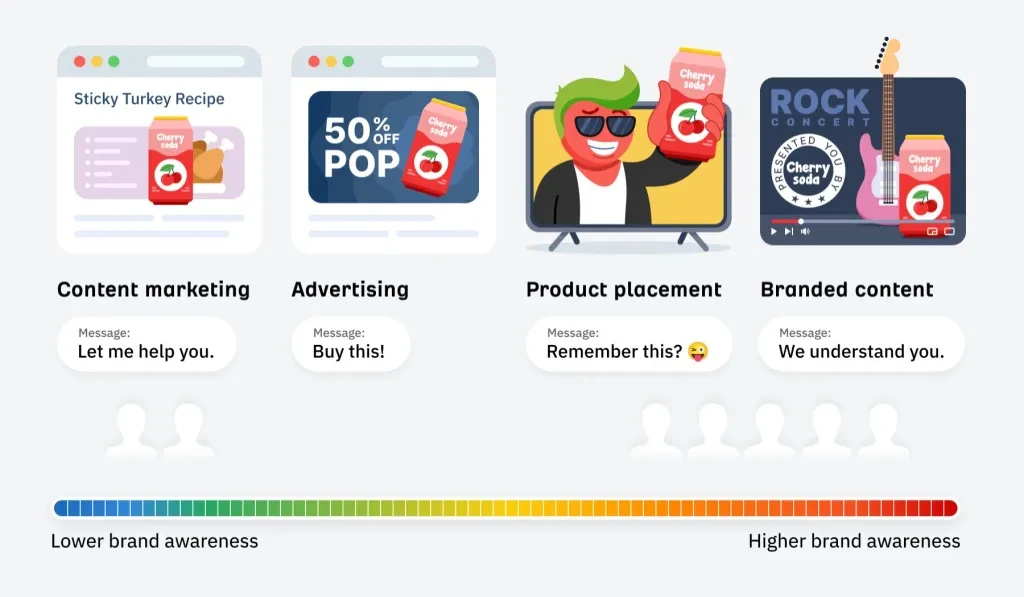
Why is it worth creating branded content?
Branded content goes beyond traditional advertising—it entertains, connects with, and sticks with your audience in ways other marketing just can’t.
Here are five reasons to give it a go.
1. Stand out against other pick-me brands
Talking to The Washington Post, CEO of Storified and former founder of Marriott’s Content Studio, David Beebe said:
Content marketing is like a first date. If all you do is talk about yourself, there won’t be a second date.
David Beebe, CEO, Storified
He may have been talking about content marketing, but Beebe perfectly articulated why branded content works so well—it sidesteps the “me-me-me!” marketing of most brands, and instead makes everything about the audience.
When you create branded content, you stand out in a playing field of pick-me brands.
2. Build positive associations
Viewers are 62% more likely to react positively to branded content vs. 30-second TV ads.
When you make something fun, beautiful, educational, or entertaining, your audience thinks better of you for it.
3. Show your human side
It may be a well-worn phrase but it rings true: people don’t buy from brands, they buy from people.
Content that features even a single human is 81% more effective than content without any people, according to a study from Kantar, Meta, and CreativeX.
Branded content lets you show the human side of your brand.
4. Get in front of entirely new audiences
Branded content is all about embracing new and entertaining formats.
And new formats, mean new channels, mean new audiences.
| Branded content format | New channel | New audiences |
|---|---|---|
| Chat show | Spotify | Podcast enthusiasts, commuters, casual listeners. |
| Zine | Issuu | Design enthusiasts, indie art or subculture communities. |
| Choose-your-own-adventure game | Twitch | Gamers, interactive content lovers. |
Branded content also improves brand recall by 81%—meaning it will linger longer in the minds of your new audiences.
And algorithms love your branded stories. Think about it. If your content causes an emotional response, it’ll reflect in user interactions—they’ll spend more time on the page, or click through to other relevant parts of the site.
Google processes that user interaction data to rank content. More positive interaction signals equals more traffic and new audience impressions.
5. Justify price increases
Weaving your brand into a narrative can justify a hefty price tag.
Rob Walker and Joshua Glenn carried out an anthropological study, Significant Objects, to prove the power of storytelling.
They took a bunch of thrift shop items selling for $1.25 on average, and sourced short, purpose-written stories for each object from 200+ esteemed writers—the likes of Meg Cabot, William Gibson, and Ben Greenman.
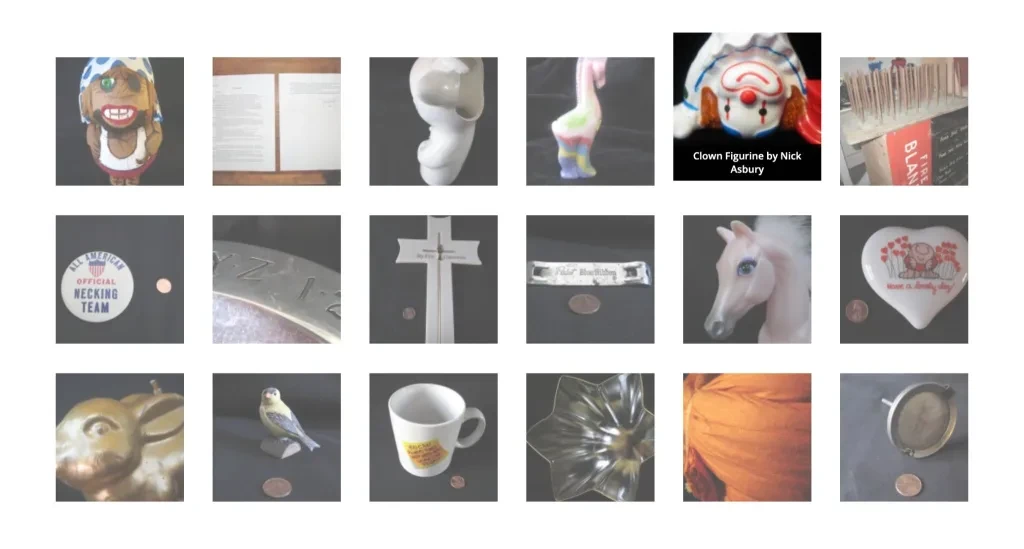
After the descriptions were added, the items sold for 6,400x their original value.
Patagonia uses storytelling in a similar way, to justify its pricing.
As part of their “Worn wear” program, they’ve created a range of branded content—from a full length film to a series of short documentaries.
The videos showcase the lifestyle of Patagonia’s customers as they take part in extreme sports and other rigorous activities—all while donning their well-loved Patagonia gear.
The campaign is about encouraging customers to repair, reuse, and recycle Patagonia clothing, while simultaneously emphasizing its durability.
Through clever storytelling, Patagonia doubles down on their commitment to conscious manufacturing and the environment—and in doing so justifies their premium price point.
Branded content needs to be thoughtful and authentic
Inauthenticity is one of the biggest risks when creating branded content. Audiences can see right through brands that don’t wear their values.
Branded content is also intentionally designed to evoke strong emotion. Any negative response you get will, by definition, be very emotional.
Another risk is creating ambiguity, and not properly conveying your brand or product message.
Apple, for instance, got it all wrong earlier this year when they released an ad showing creative objects and art being crushed by an industrial press, only to reveal their latest iPad.
People were outraged. Many read the ad as Apple dismissing traditional media—not celebrating the creative possibilities of the new iPad, as Apple had intended.
How do you measure the success of branded content?
Content marketing goals are ultimately tied to sales and the marketing funnel—e.g.
- Traffic (e.g. # of monthly organic sessions)
- Lead generation (e.g. # of MQLs)
Branded content goals, on the other hand, tend to be measures of audience perception—e.g.
- Brand awareness: How much your audience recognizes your brand name, logo, or products.
- Brand recall: You audiences’ ability to spontaneously remember your brand.
- Brand sentiment: How your brand makes your audience feel.
- Brand loyalty: How likely consumers are to repeatedly purchase your brand over alternatives.
For that reason, branded content is a little trickier to track—but it can still be done.
Track mentions
When branded content is released into the wild, it can lead to a high volume of mentions.
To analyze this coverage, head to Ahrefs Content Explorer:
- Search your brand + the name of your branded content
- Hit the “News” filter to zero-in on mainstream media mentions
- Check the pages mentioning your branded content
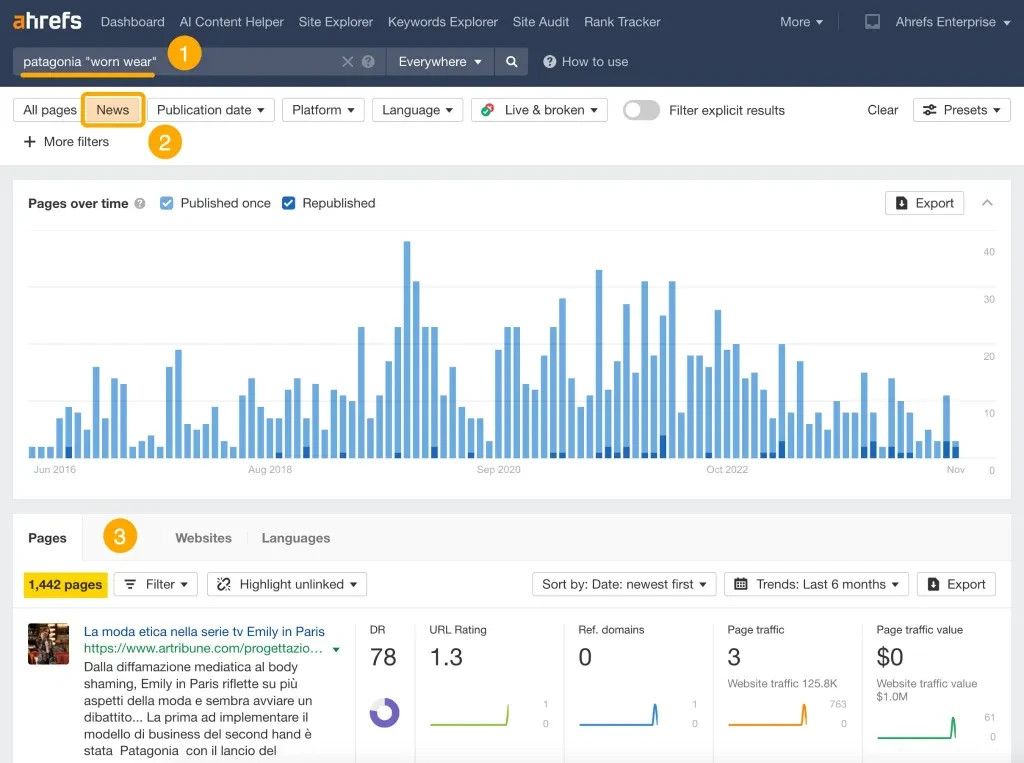
Branded content also has the ability to bump up your topical authority. Here’s an example of what I mean.
Patagonia’s branded content is largely about proving their commitment to sustainability.
If they wanted to know how closely tied they are to this topic, they could look for co-mentions of the word “sustainability” in their brand mentions.
They’d just need to head to Ahrefs Content Explorer:
- Do a search for their brand name
- Check their total brand mentions
Then
- Do a boolean search for their brand name AND sustainability
- Check the number of topic mentions
In doing so, they’d be able to work out topic mentions as a percentage of their overall brand mentions.

On this occasion, 3.2% of Patagonia’s brand mentions also mention the keyword sustainability.
Monitoring these figures can give you a solid sense of your overall topical authority, and help you stay on top of any growth.
Making a conscious effort to align yourself with audience topics will help you claim more visibility in search engines—and even AI answers.
Monitor traffic uplift
You can track the organic traffic of your owned branded content in Site Explorer. Just search the campaign page or subdomain for a performance overview.
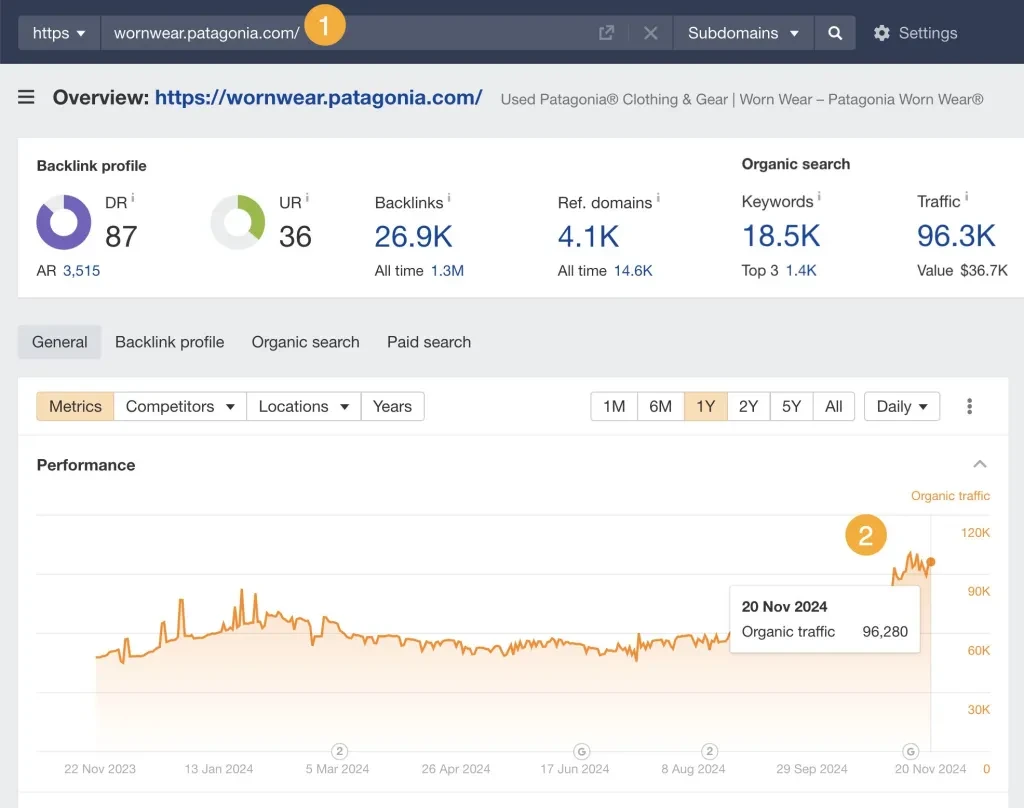
Or track specific topics and keywords related to your branded content in Ahrefs Rank Tracker.
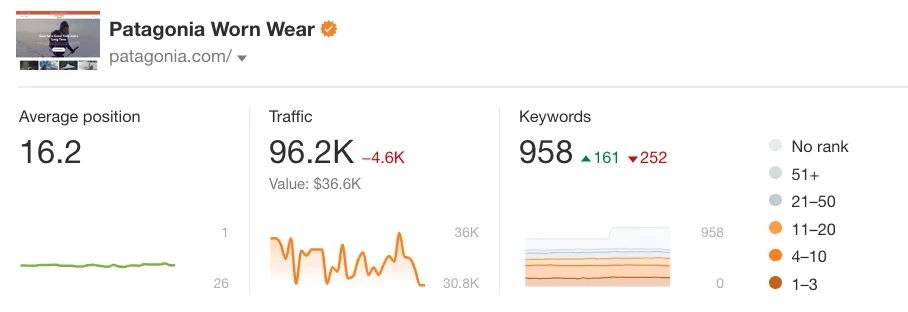
Check keyword growth
Branded content can drive some serious search volume interest. Use this data to prove the value of your creativity, and justify budgets for future branded content.
- Search relevant branded content topics in Keywords Explorer
- Check top-level data at the head of the report
- Check individual keyword volumes
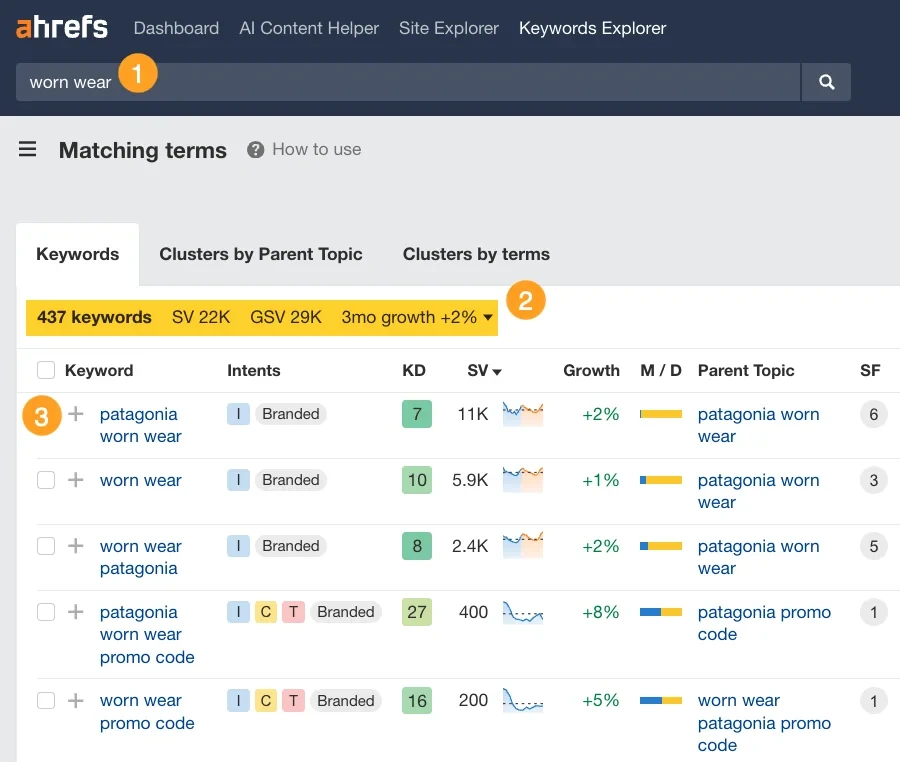
Keep a note of links
You can check the links your branded content has attracted simply by filtering for mentions of your campaign name in Ahrefs Backlinks Report.
- Search your domain in Ahrefs Site Explorer and head to the Backlinks report
- Enter your branded content campaign name in the filter “Anchor with surrounding text”
- See how many links you’ve picked up
- Check how your branded content is being spoken about in the anchor excerpt
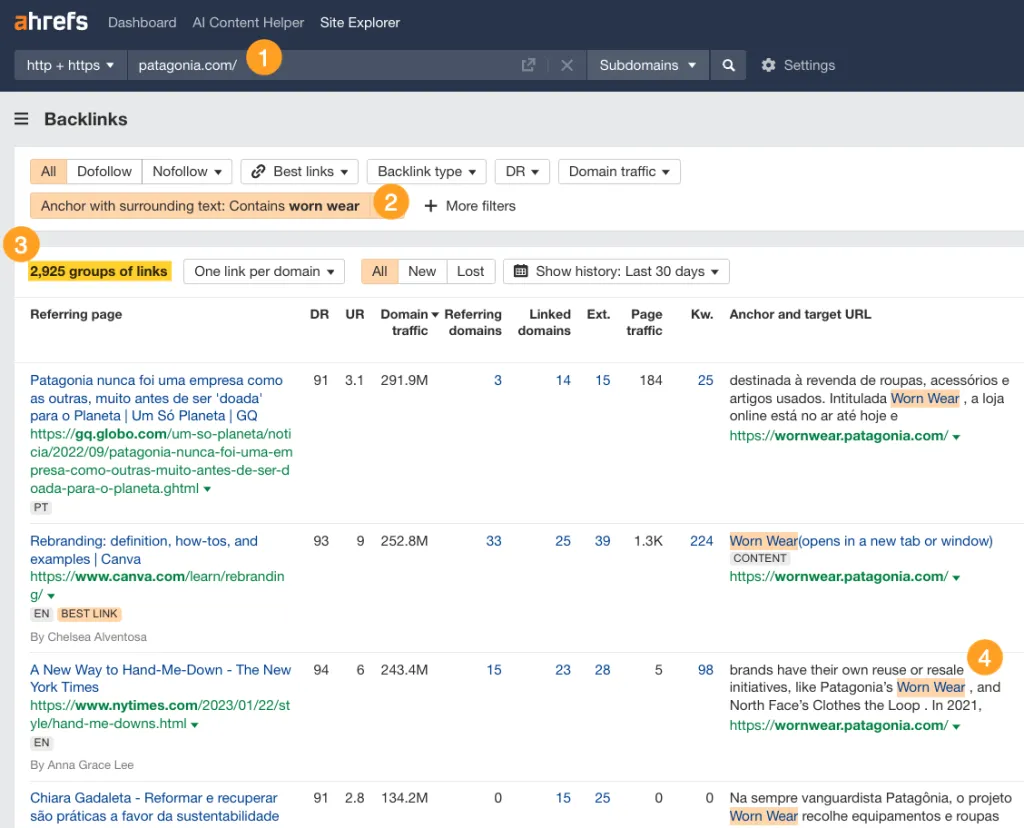
7 branded content examples
If branded content does its job, audiences will go out of their way to consume it–just as do with everyday entertainment.
Here are some great examples of branded content from brands in B2C, B2B, and even SaaS.
1. Thoropass: Scam Hunters
What business does an infosec company have creating a “business thriller” podcast? Well, they know a lot about scammers, and their audience enjoys a bit of crime fiction, of course!
Voiced by award-winning actors Erin Moriarty (The Boys, Jessica Jones) and Greg Kinnear (Little Miss Sunshine, You’ve Got Mail), the podcast is a story about a disgraced Chief Information Security Officer (Kinnear) and a journalist (Moriarty) investigating a spate of scams targeting terminally ill patients.

The creator, Ian Faison, CEO of Caspian Studios is behind some other great examples of branded content—namely podcast dramas like Murder in HR (in collaboration with wellness service provider Wellhub) and The Hacker Chronicles (alongside Tenable Cloud Security).
The problem with a B2B topic like compliance is that people often don’t know what it is or why they need help with it.
Scam Hunters takes the fairly unsexy, obscure topic of infosec, and uses dramatic storytelling to make it a whole lot more interesting and accessible—all while quietly educating the audience of its importance.
Plus, the narrative sets up the “problem” that Thoropass solves, making for a nice subliminal sales pitch.
2. Loewe: Decades of Confusion
Starring actors Aubrey Plaza (The White Lotus, Parks and Recreation) and Daniel Levy (Schitt’s Creek, Good Grief), Decades of Confusion is a surreal short film from fashion brand Loewe.
We see spelling-bee contestants across the decades trying and failing to spell the brand name Loewe, to hilarious effect.
Every contestant is played by Plaza, who sports an iconic Loewe outfit in each era—a nod to the evolution of the brand’s designs throughout the ages.
While this could be seen as advertising, I’d argue that it’s also a great example of branded content. At two and a half minutes, it’s the length of a short, and—like all branded content— is largely narrative-driven. The fact that Loewe defer creative control to Levy and Director Ally Pankiw (The Great, Shrill, Feel Good) also signals that this project is about entertaining the audience, rather than just selling to them.
Fans will seek out this content specifically to see Plaza and Levy—two actors loved for their sardonic personas and quirky style. By featuring them, Loewe clearly communicate the brand’s cultural identity and values, align themselves with their audience, and build that emotional connection.
3. Hallmark + NFL
Hallmark and NFL have joined teams to develop some NFL-branded hallmark holiday content.
You know, those movies where the high powered business woman heads home for the holidays, and, in a series of inexplicable events (hint: Christmas magic), meets her soul mate and decides to pack it all in to live happily-ever-after in her quaint little hometown village, where Christmas is a 365 day a year event, and the neighbors are friendly and everyone gets along and it all sort of feels like a Black Mirror episode?
Don’t pretend you don’t know what I’m talking about!
Since the Taylor Swift and Travis Kelce romance blossomed, female audiences have taken more of an interest in football.
In fact, 64% of Gen Z and millennial women now hold a favorable view of the NFL
Hallmark is making the most of this uptick in audience sentiment by partnering with NFL to create original movies like Holiday Touchdown: A Chiefs Love Story.
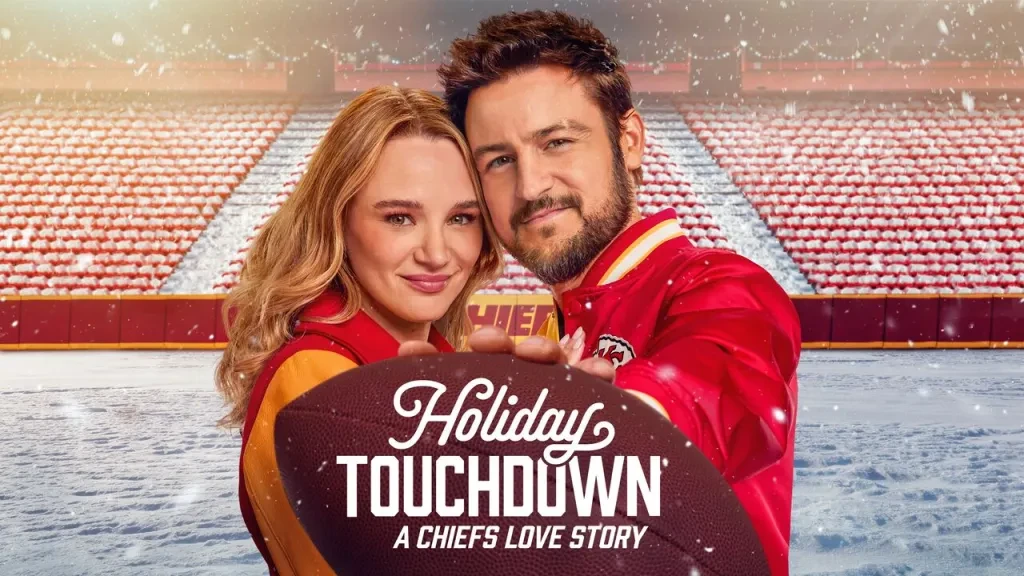
This branded content will help Hallmark expand its audience to NFL fans—old and new— keeping them culturally relevant.
But the branded content collab doesn’t just make sense for Hallmark. The NFL will also benefit by:
- Diversifying their fan base; connecting with Hallmark’s family-oriented audience.
- Building more emotional engagement between their audience and their brand.
- Aligning their brand image with values of connection and family.
4. Paddle: Paddle Studios
Paddle is a global payment infrastructure provider for SaaS companies, and they’re using branded content in a big way.
The Paddle marketing team have set up their own Netflix-style studio, creating everything from documentaries like We Sign Tomorrow—the insider story of a tech acquisition— to web series like Born Global, which follows the personal and professional stories of entrepreneurs from around the world.
This is very much long-game marketing. It won’t deliver immediate leads, demos, or sales, but it is definitely absorbing and will engage their core audience.
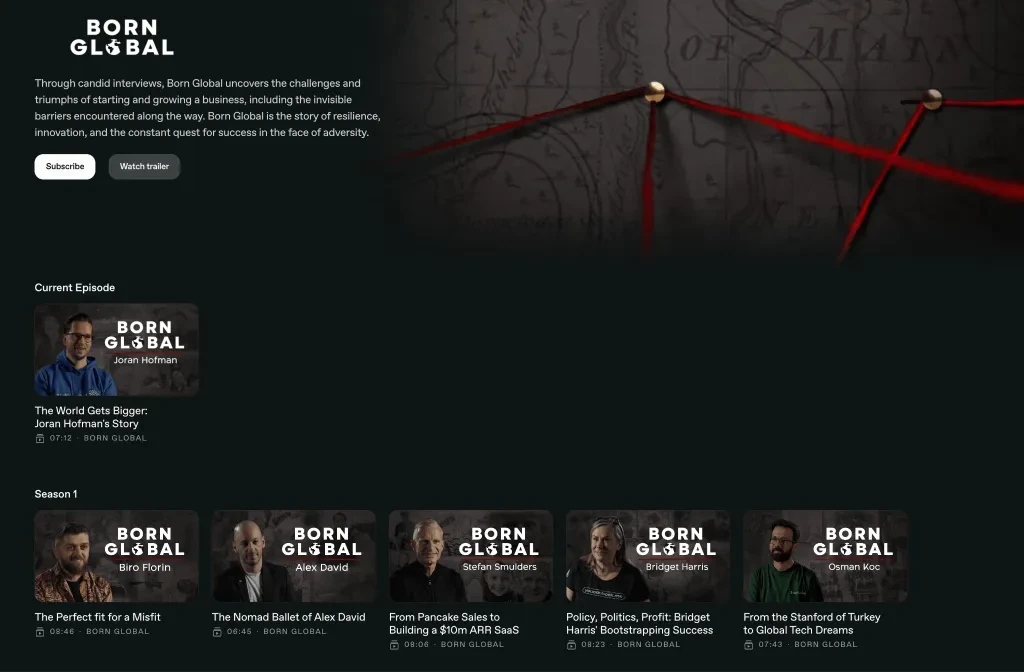
B2B/SaaS brands are hard to understand and even harder to connect with. You could argue that there’s an even greater need for them to be creating this kind of branded content.
Paddle could just as easily be a faceless SaaS brand, but instead they decided to focus on being human and relatable.
5. Tide: #TideTackles
Tide’s “#TideTackles” campaign features NFL legends visiting tailgates across the U.S.
It celebrates the messiness of game-day foods and fan traditions through unscripted, authentic storytelling.
NFL fans can relate to and connect with the Tide brand on a local level, because the content spotlights regional food.
Distribution is also a key part of Tide’s branded campaigns. It shares content across TikTok, Instagram, and YouTube to engage audiences via. the platforms they’re most active on.
6. Sky and Dogs Trust: Bonfire Night pop-up TV channel
Dogs Trust collaborated with Sky, Now, and Magic Classical to create a dedicated pop-up TV channel, to calm dogs down during bonfire night.
The branded content campaign included a schedule of feel-good movies—like Bridget Jones and Shrek—and a playlist of classical music to soothe anxious dogs and their owners.
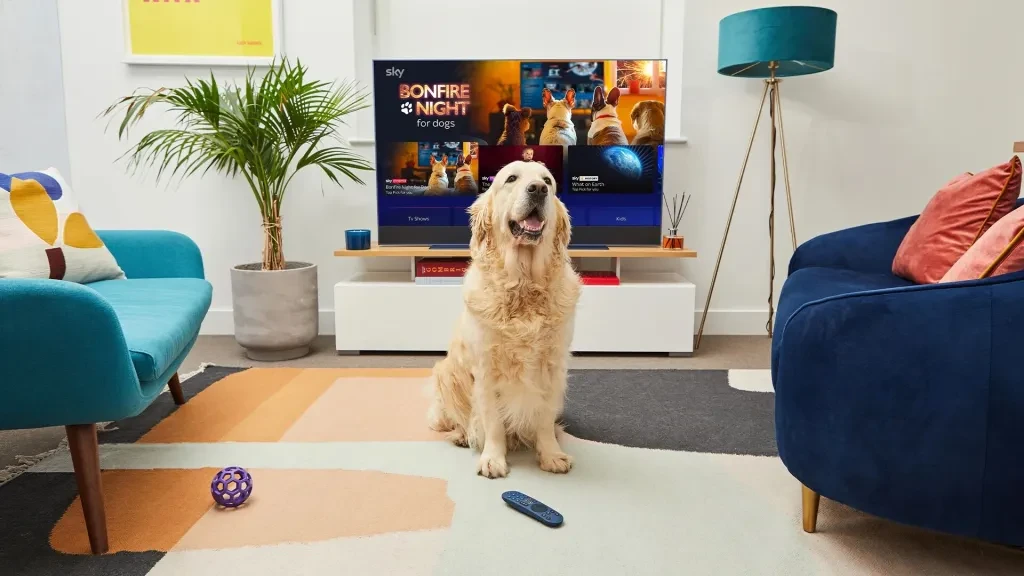
Both brands focused on the emotional challenge of keeping dogs calm during fireworks, to align themselves with an audience of dog owners who identify as compassionate and committed to animal welfare.
7. Ahrefs: White Haired SEO book and SEO The Board Game™️
You may have heard about our children’s book. SQ just mentioned it in his awesome article: Why Great Marketing Is Risky As Hell.
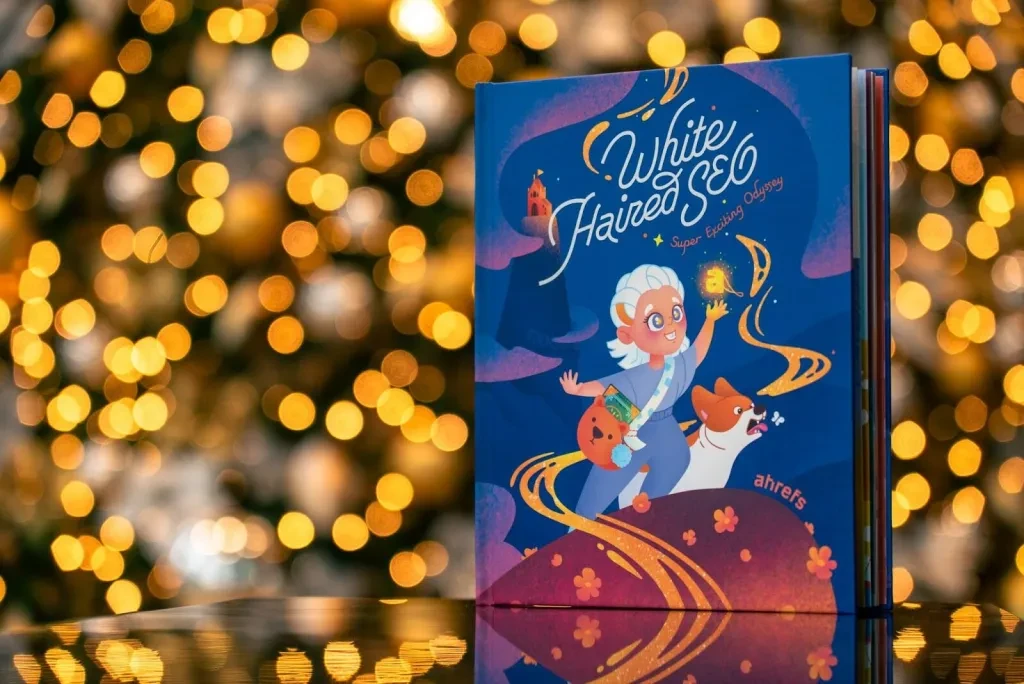
Speaking from experience—having given away literally hundreds of copies at events—this piece of branded content has been a huge hit.
While reading, our target audience gets to:
- Bond with their child over a cute kids story
- Teach their child about their career
- Enjoy one or two SEO in-jokes along the way
It has very little to do with the content marketing we put out day-to-day, but this book really seems to have struck an emotional chord with our audience.
It’s also been a great ice breaker, drawing new audiences in at events and helping with brand recall.
For that reason, we’re not done with branded content.
We’ve just sponsored SEO The Board Game™️, where players can play as SEO experts, purchase and optimize websites, build their digital empires, and compete for the title of SEO kingpin.
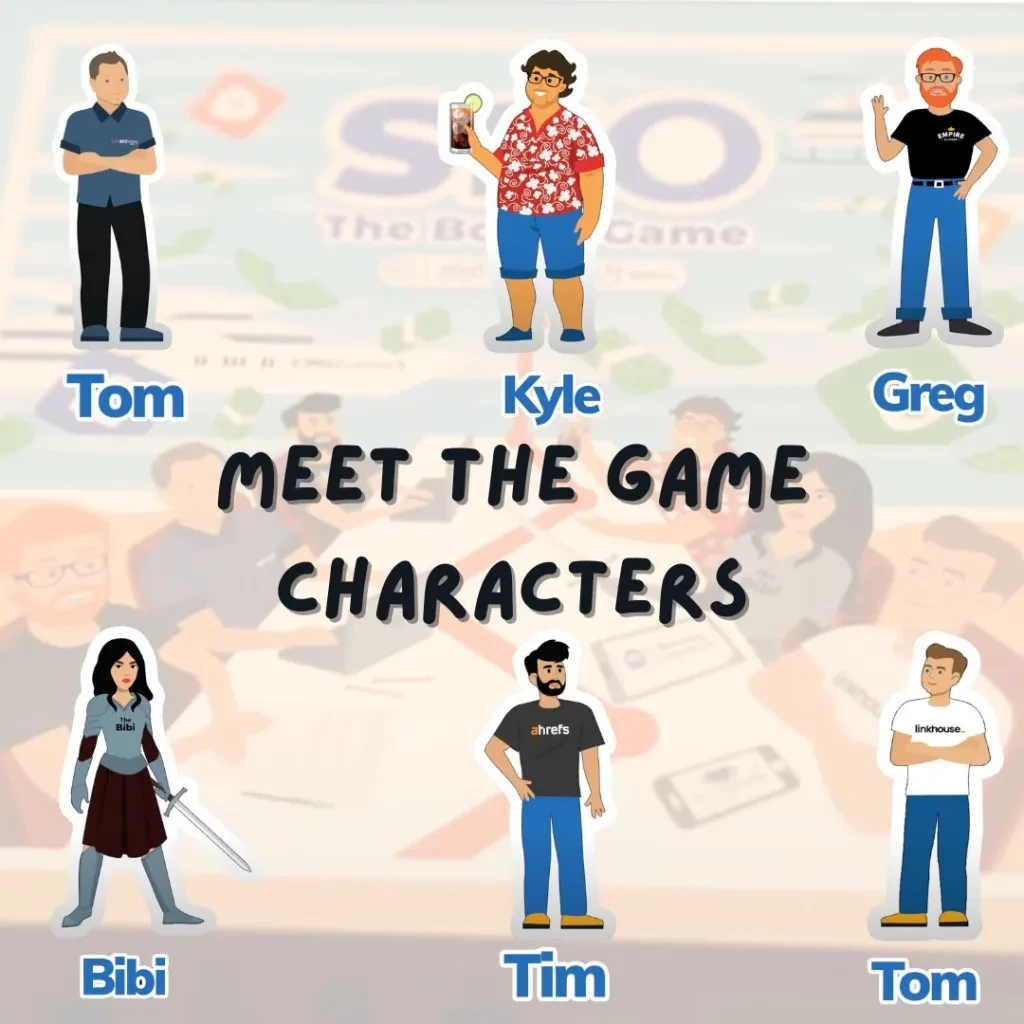
Having worked in SEO and content for nearly 10 years, I can confidently state: when you draw a venn diagram of SEOs and board game enthusiasts, there’s a big ol’ overlap.
We want our audience to enjoy what we enjoy, and hope that these fun, quirky experiences help us to stand out as being relatable, against other cookie-cutter SaaS brands.
Final thoughts
If you want to start consciously creating branded content, focus on getting to know your audience better.
Mine customer conversations, use audience research tools, and track trending topics to inspire your branded content ideas.
Something I’ve only briefly mentioned—but will make branded content indispensable—is AI.
Creating content that elicits a gut feeling or an emotional response in your audience will be one of only a few ways to cut through in a world where “information is dirt cheap” and anyone with a ChatGPT account can become a content creator.
The brands sitting pretty in search and LLMs will be the ones that have closely aligned themselves with their audience’s interests. You’ll see it in their mentions, links, traffic, and search volumes.
The faceless, emotionless brands? Yeah. They’re not going to do so well in this next bit.
Source from Ahrefs
Disclaimer: The information set forth above is provided by ahrefs.com independently of Alibaba.com. Alibaba.com makes no representation and warranties as to the quality and reliability of the seller and products. Alibaba.com expressly disclaims any liability for breaches pertaining to the copyright of content.



